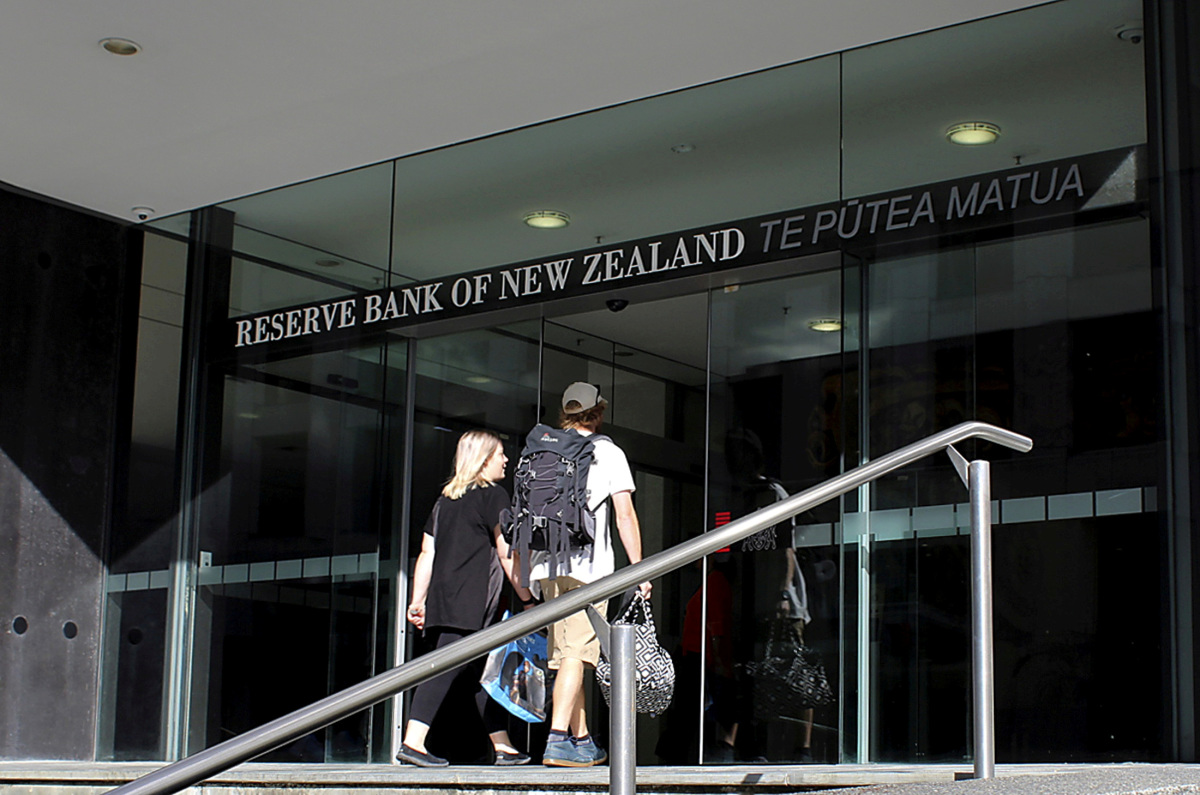Reuters
New Zealand’s central bank unexpectedly raised interest rates by 50 basis points to a more than 14-year peak of 5.25% on Wednesday, saying inflation was still too high and persistent and kept the door open to further tightening.
The central bank’s hawkish stance saw a number of economists revise their expectations, predicting it would increase the official cash rate (OCR) to a peak of 5.5%. It has hiked rates by 500 bps since October 2021, undertaking its most aggressive tightening streak since the OCR was introduced in 1999.
The Reserve Bank of New Zealand said the committee needed to increase the cash rate if it is to return inflation to its target of 1%-3%. Inflation in the fourth quarter was at 7.2%.
It added it expects to see a continued slowing in domestic demand and a moderation in core inflation and inflation and the extent of this moderation will determine the direction of future monetary policy decisions.
“Inflation is still too high and persistent, and employment is beyond its maximum sustainable levels,” it said.
It also noted upside risks to inflation from the severe weather earlier this year and government spending, and raised concerns about a possible fall in lending rates.
UNEXPECTED
The decision surprised markets with no economists in a Reuters poll predicting a 50 basis point hike.
The RBNZ, among the first global central banks to withdraw pandemic-era stimulus, has pursued one of the most aggressive tightening cycles around the globe. Wednesday’s decision comes in sharp contrast with the Reserve Bank of Australia’s decision to hold the cash rate steady.
The New Zealand dollar bounced 1% to touch a two-month high of $0.6383 before standing 0.73% firmer at $0.6351.
Two-year swaps jumped 15 bps to 5.11%, still well below the March peak of 5.53%, while the 90-day bank bill rate implied the official cash rate would peak at 5.5%.
“The RBNZ is determined to lower inflation, whatever the cost. And today’s supersized hike reflected the RBNZ’s resolve, Kiwibank economists said in a note.
Kiwibank along with ANZ, Bank of New Zealand, ASB Bank and Capital Economics now expect the cash rate to peak at 5.5%.
DARK CLOUDS LOOM
New Zealand’s economy contacted 0.6% in the fourth quarter and economists see a possibility the country is already in recession given the impact of the two severe weather events in January and February. The central bank has forecast the country will move into a shallow recession, something it is hoping for as it wants to dampen inflation.
The central bank noted that while the level of economic activity over the fourth quarter was lower than anticipated and there were emerging signs of capacity pressures easing, demand continues to significantly outpace supply capacity.
Capital Economics said the RBNZ’s tightening bias all but firms up their forecast that New Zealand will enter a protracted recession this year.
“With the downturn likely to generate rapid disinflation, we still think rate cuts will be on the table before the year is out,” it said.






